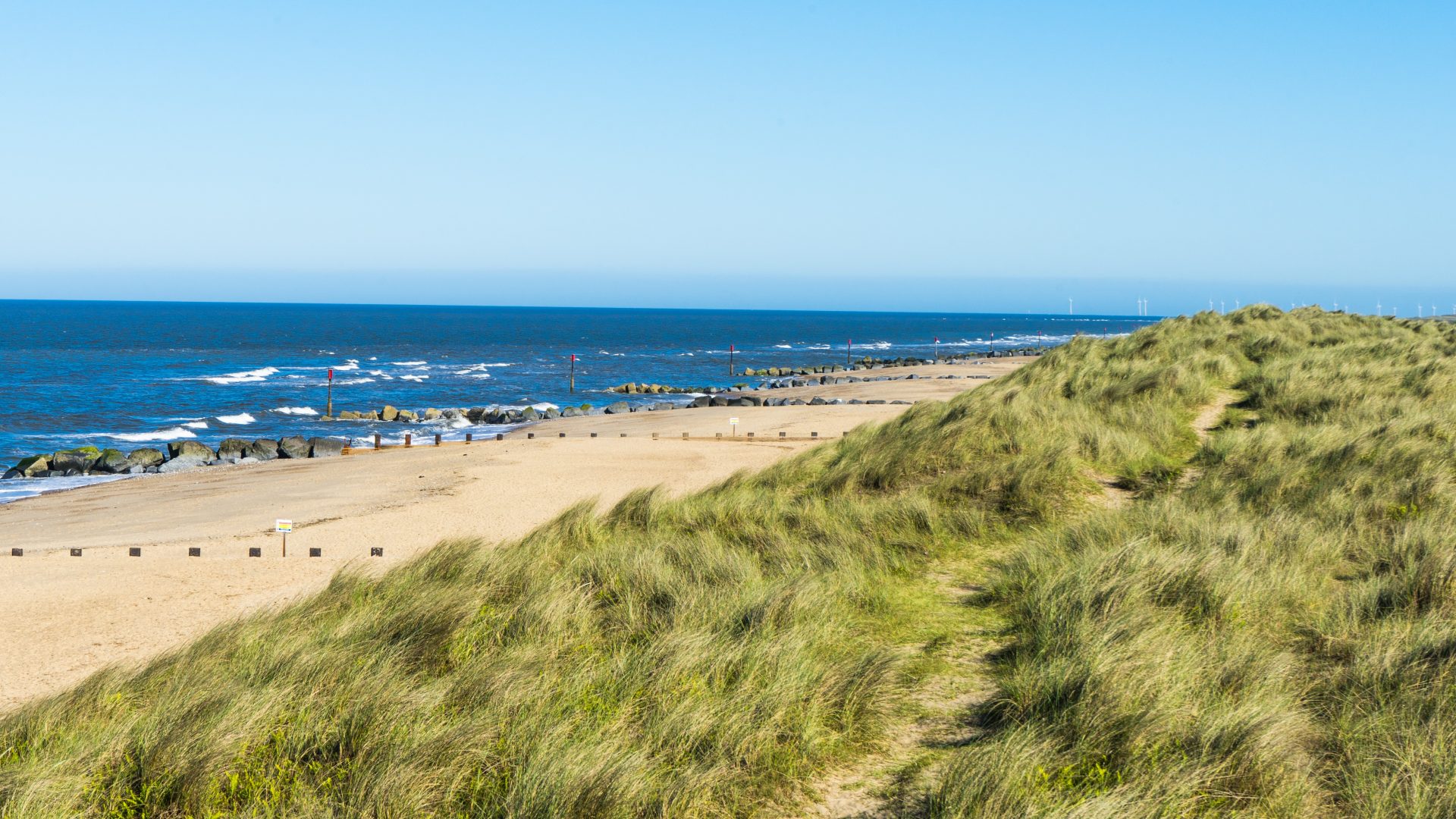Annual works by the Environment Agency to reduce the risk of flooding for Lincolnshire’s coastal communities has now started.
Around 400,000 cubic metres of sand will be topped up on beaches between Saltfleet and Gibraltar Point to reduce the risk of flooding for Lincolnshire’s coastal communities.
The Environment Agency’s annual beach management sees sand dredged from licensed areas of the seabed. This is then pumped onto the beach to replace levels naturally lost to the sea throughout the year. This reduces the risk of flooding for 20,000 homes and businesses, 24,500 static caravans and 35,000 hectares of land.
Replenishing the sand means that the beaches, instead of hard defences like sea walls, take the brunt of the waves’ force and energy. This reduces the amount of damage and erosion to those hard defences and lessens the risk of water overtopping them.
The Environment Agency has been restoring sand levels on the Lincolnshire coast every year since 1994. In addition to reducing flood risk, the work brings supplementary social and economic benefits by retaining the sandy beaches for a vibrant tourism industry.
Deborah Campbell, Flood Risk Manager at the Environment Agency, said:
“As well as reducing the risk of flooding to 20,000 homes and businesses, 24,500 static caravans and 35,000 hectares of land. The work helps maintain the county’s sandy beaches for us all to enjoy.
“But despite our best efforts, flooding can still happen. That’s why we urge people to prepare and plan for the worst, including by signing up to receive free flood warnings.”
The £7 million beach management work is funded as part of the Environment Agency’s capital programme. The programme is a record £5.2 billion government investment in England’s flood and coastal defences to better protect hundreds of thousands of properties by 2027.



